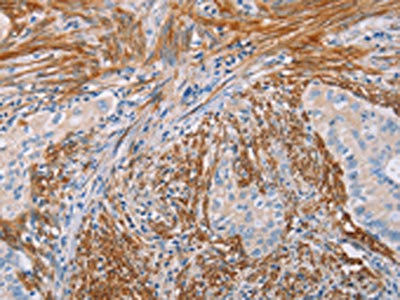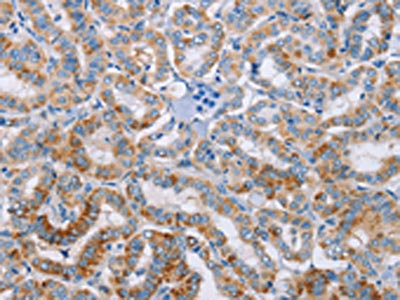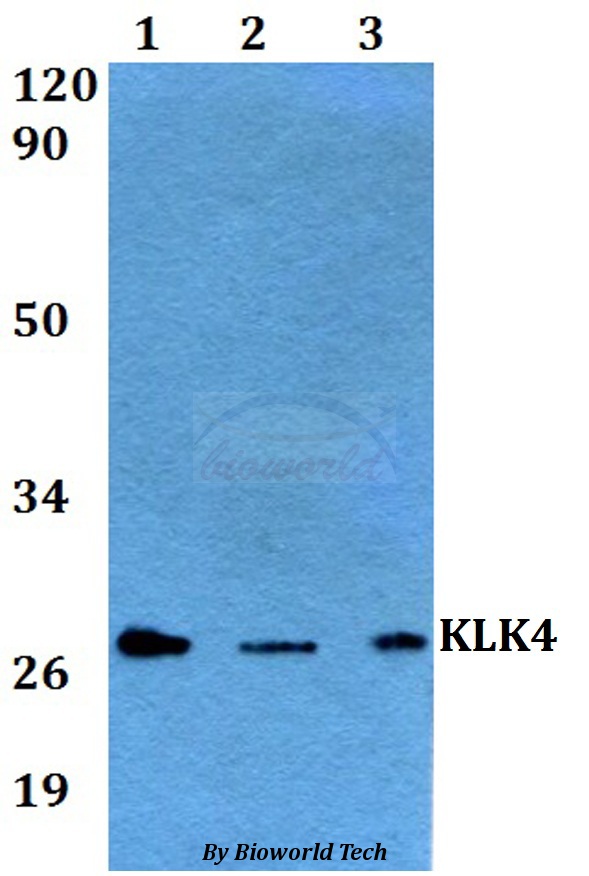
The image on the left is immunohistochemistry of paraffin-embedded Human cervical cancer tissue using CSB-PA211882(KLK4 Antibody) at dilution 1/15, on the right is treated with fusion protein. (Original magnification: x200)
KLK4 Antibody
CSB-PA211882
ApplicationsELISA, ImmunoHistoChemistry
Product group Antibodies
ReactivityHuman
TargetKLK4
Overview
- SupplierCusabio
- Product NameKLK4 Antibody
- Delivery Days Customer20
- ApplicationsELISA, ImmunoHistoChemistry
- CertificationResearch Use Only
- ClonalityPolyclonal
- ConjugateUnconjugated
- Gene ID9622
- Target nameKLK4
- Target descriptionkallikrein related peptidase 4
- Target synonymsAI2A1, ARM1, EMSP, EMSP1, KLK-L1, PRSS17, PSTS, kallikrein, kallikrein-4, androgen-regulated message 1, enamel matrix serine protease 1, enamel matrix serine proteinase 1, kallikrein-like protein 1, prostase, serine protease 17
- HostRabbit
- IsotypeIgG
- Protein IDQ9Y5K2
- Protein NameKallikrein-4
- Scientific DescriptionKallikreins are a subgroup of serine proteases having diverse physiological functions. Growing evidence suggests that many kallikreins are implicated in carcinogenesis and some have potential as novel cancer and other disease biomarkers. This gene is one of the fifteen kallikrein subfamily members located in a cluster on chromosome 19. In some tissues its expression is hormonally regulated. The expression pattern of a similar mouse protein in murine developing teeth supports a role for the protein in the degradation of enamel proteins. Alternate splice variants for this gene have been described, but their biological validity has not been determined.
- ReactivityHuman
- Storage Instruction-20°C or -80°C
- UNSPSC41116161






